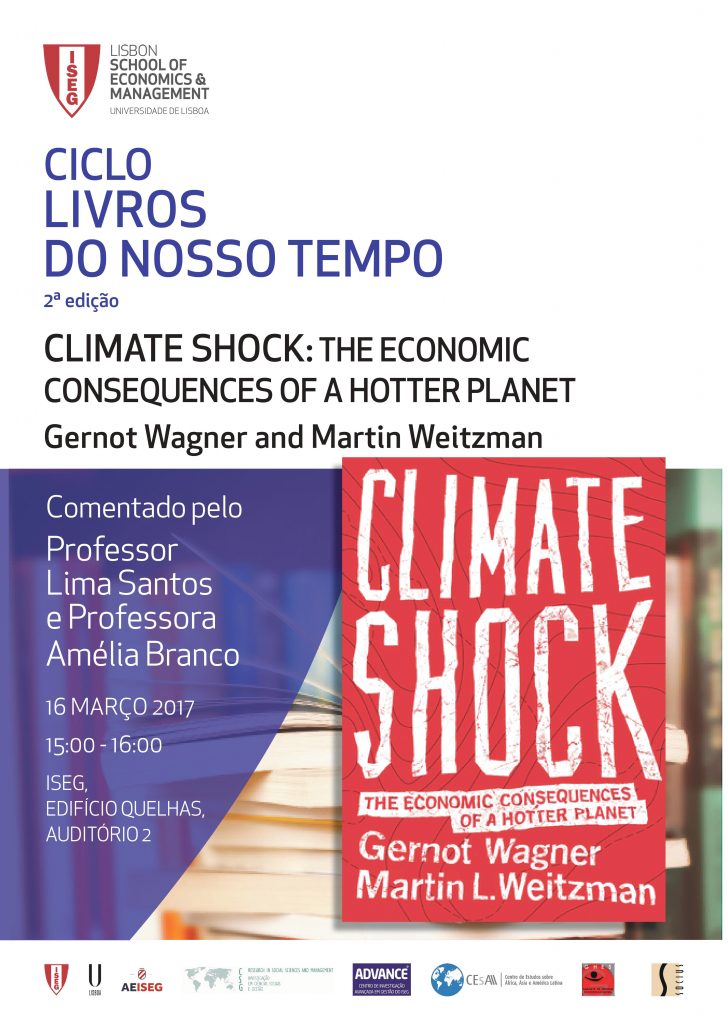
Held on pasted March 16th, 2017, Lima Santos (ISA/UL), expert in Environmental Economics, and Amélia Branco (GHES/ISEG/UL), expert in Social and Economic History, talked about the book Climate Shock: The Economic Consequences of a Hotter Planet by Gernot Wagner & Martin Weitzman.
Gernot Wagner is lead senior economist at the Environmental Defense Fund. He is the author of But Will the Planet Notice? (Hill & Wang). Martin L. Weitzman is professor of economics at Harvard University. His books include Income, Wealth, and the Maximum Principle. For more, see www.gwagner.com and scholar.harvard.edu/weitzman.
In Climate Shock, Gernot Wagner and Martin Weitzman explore in lively, clear terms the likely repercussions of a hotter planet, drawing on and expanding from work previously unavailable to general audiences. They show that the longer we wait to act, the more likely an extreme event will happen. A city might go underwater. A rogue nation might shoot particles into the Earth’s atmosphere, geoengineering cooler temperatures. Zeroing in on the unknown extreme risks that may yet dwarf all else, the authors look at how economic forces that make sensible climate policies difficult to enact, make radical would-be fixes like geoengineering all the more probable. What we know about climate change is alarming enough. What we don’t know about the extreme risks could be far more dangerous. Wagner and Weitzman help readers understand that we need to think about climate change in the same way that we think about insurance–as a risk management problem, only here on a global scale.
Demonstrating that climate change can and should be dealt with–and what could happen if we don’t do so–Climate Shock tackles the defining environmental and public policy issue of our time.
